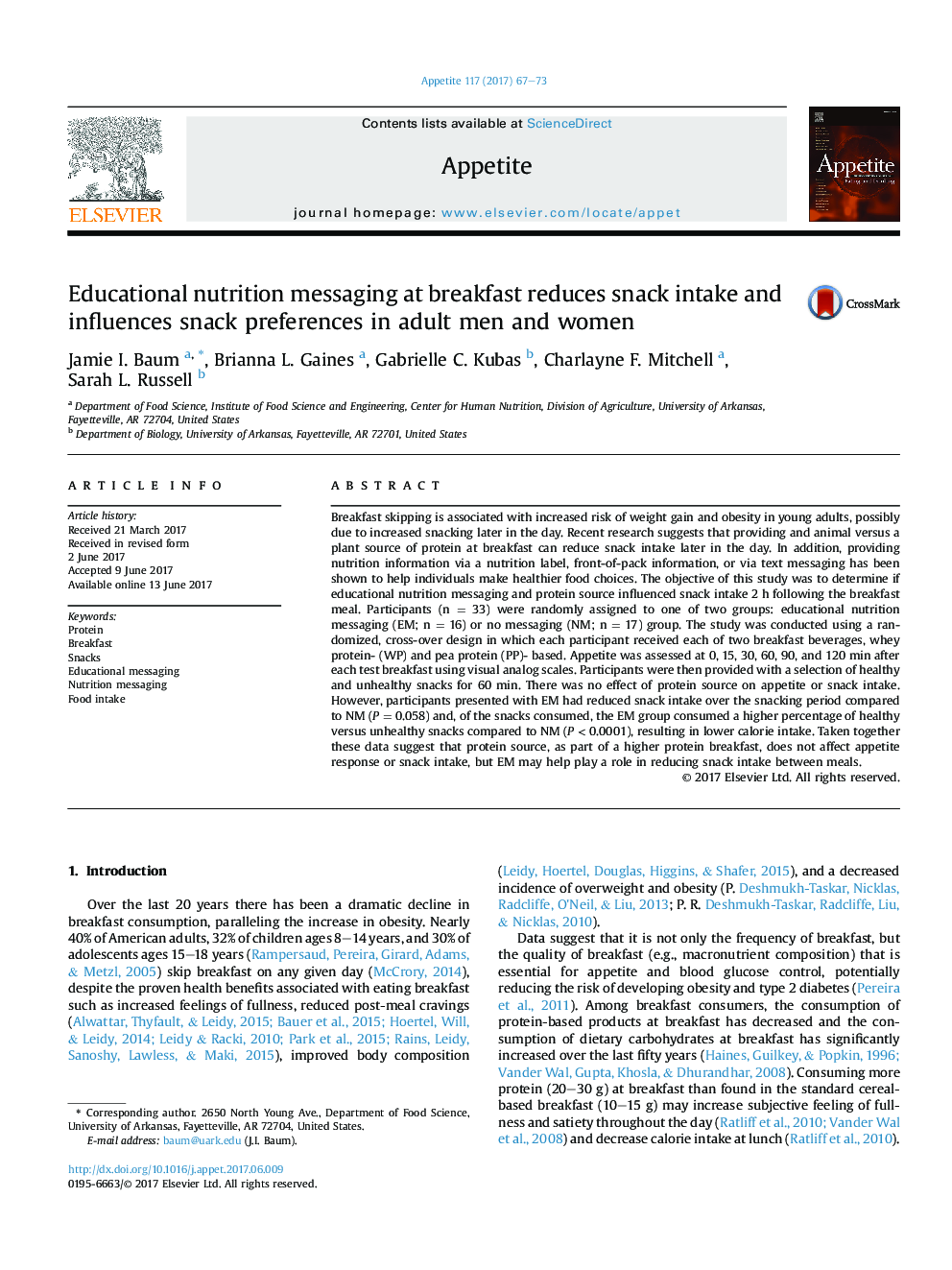| کد مقاله | کد نشریه | سال انتشار | مقاله انگلیسی | نسخه تمام متن |
|---|---|---|---|---|
| 5044059 | 1475363 | 2017 | 7 صفحه PDF | دانلود رایگان |
Breakfast skipping is associated with increased risk of weight gain and obesity in young adults, possibly due to increased snacking later in the day. Recent research suggests that providing and animal versus a plant source of protein at breakfast can reduce snack intake later in the day. In addition, providing nutrition information via a nutrition label, front-of-pack information, or via text messaging has been shown to help individuals make healthier food choices. The objective of this study was to determine if educational nutrition messaging and protein source influenced snack intake 2 h following the breakfast meal. Participants (n = 33) were randomly assigned to one of two groups: educational nutrition messaging (EM; n = 16) or no messaging (NM; n = 17) group. The study was conducted using a randomized, cross-over design in which each participant received each of two breakfast beverages, whey protein- (WP) and pea protein (PP)- based. Appetite was assessed at 0, 15, 30, 60, 90, and 120 min after each test breakfast using visual analog scales. Participants were then provided with a selection of healthy and unhealthy snacks for 60 min. There was no effect of protein source on appetite or snack intake. However, participants presented with EM had reduced snack intake over the snacking period compared to NM (P = 0.058) and, of the snacks consumed, the EM group consumed a higher percentage of healthy versus unhealthy snacks compared to NM (P < 0.0001), resulting in lower calorie intake. Taken together these data suggest that protein source, as part of a higher protein breakfast, does not affect appetite response or snack intake, but EM may help play a role in reducing snack intake between meals.
Journal: Appetite - Volume 117, 1 October 2017, Pages 67-73
